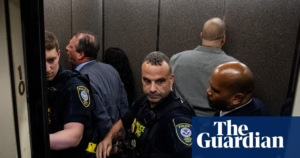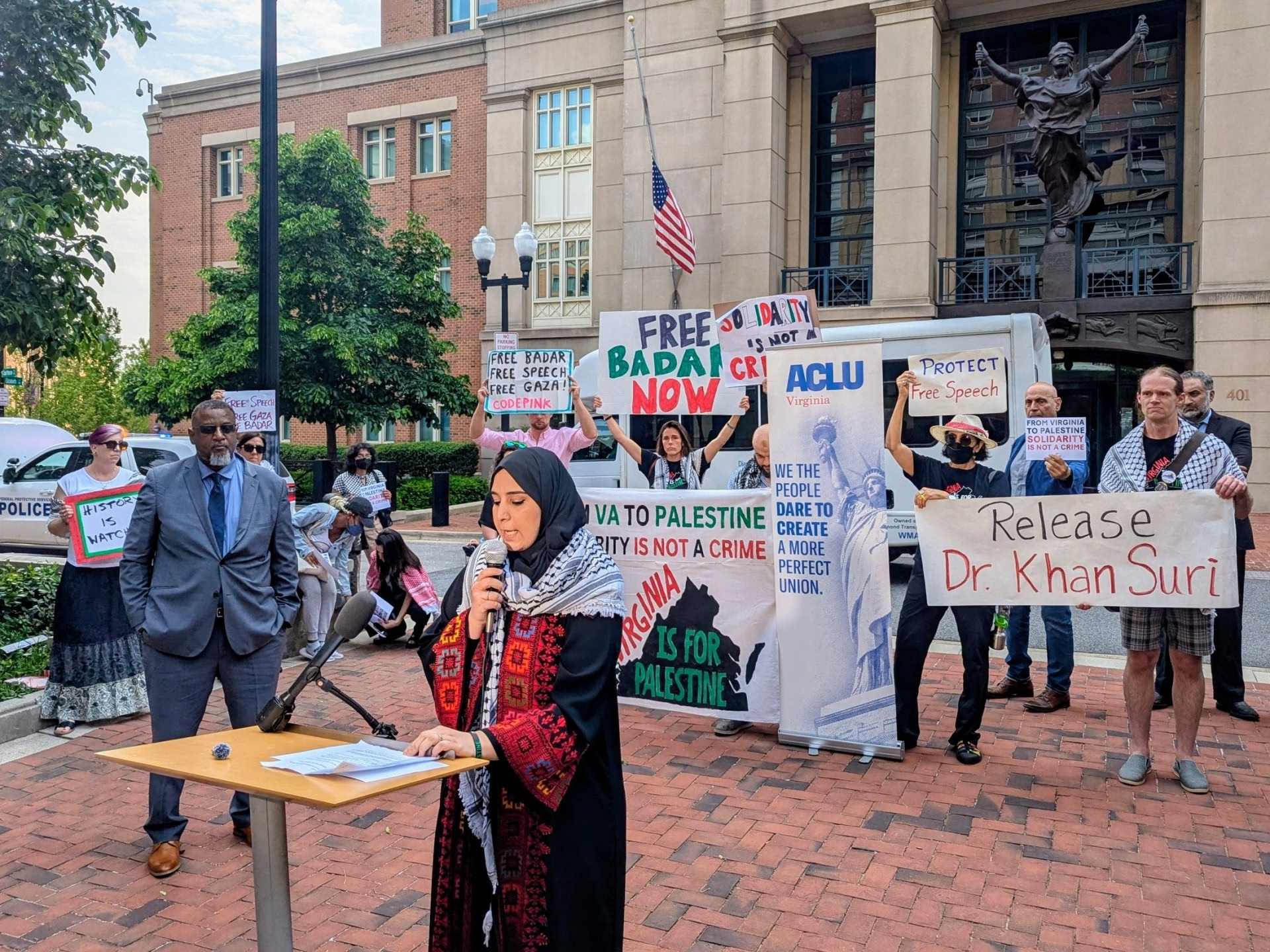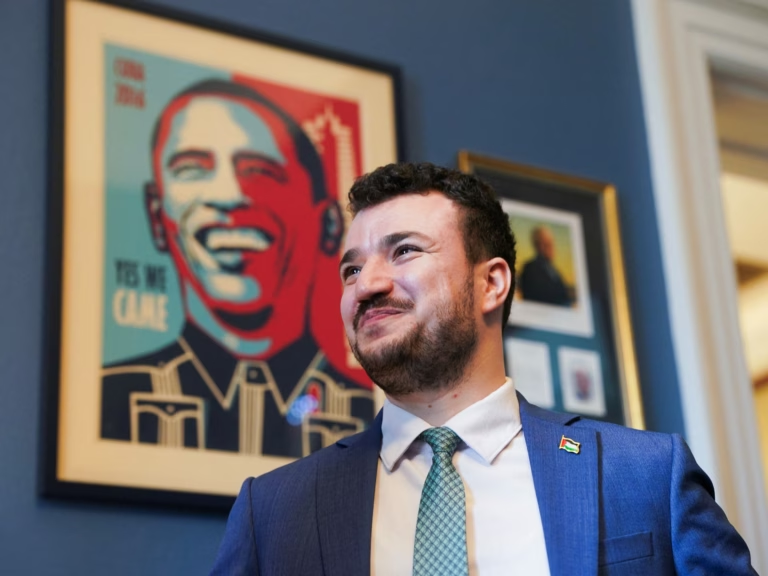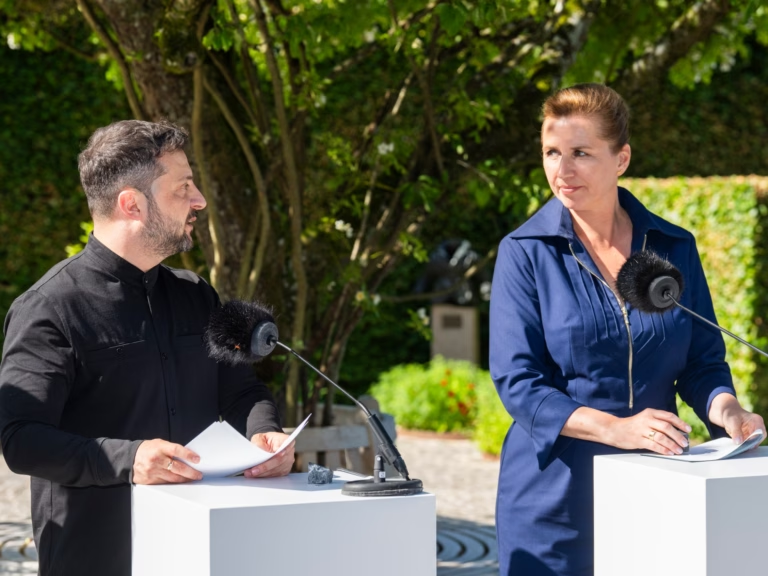Outside a federal courthouse near Washington, DC, on Thursday, those words echoed as lawyers discussed the case of Badar Khan Suri, a man detained by the United States government for his advocacy for Palestinian rights.
Hundreds had shown up in solidarity with Khan Suri, a postdoctoral scholar at Georgetown University. In March, he was arrested as part of President Donald Trump’s crackdown to punish and deport non-citizens accused of promoting “anti-Semitism” and “illegal protests” on college campuses.
Addressing the crowd in Alexandria, Virginia, Mapheze Saleh, Khan Suri’s Palestinian American wife, drew attention to the impact his detention has had on their three children. She stated her family simply wants her husband back.
“Why is this happening to him? Why is the Trump administration pursuing him?” Saleh inquired. “It’s because he contaminated the family with his love for Palestinians, because he dared to preach non-violence, and because he boldly voiced his opposition to the genocide of my people in Gaza.”
Prior to his detention, Khan Suri was in the US on an academic visa, researching peace-building in Iraq and Afghanistan.
The US government accuses Khan Suri, an Indian national, of violating his visa terms by spreading “Hamas propaganda and promoting anti-Semitism on social media,” yet no proof has been presented.
Thursday’s events outside the courthouse showed solidarity for Khan Suri’s freedom and Palestinian rights. Protesters held signs like “Mob bosses disappear people” and “Due process now” under a statue of a blindfolded woman symbolizing justice.
A case in Virginia, a client in Texas
In the courtroom, lawyers debated the inequality between where the hearing took place and where Khan Suri’s location. After his arrest in Virginia, immigration officials swiftly moved him to Louisiana and Texas.
Critics argue that such moves are designed to separate those facing deportation from their families and legal teams, often in conservative courts.
Accordingly, Khan Suri’s lawyers argued for his case to be handled in Virginia. The Trump administration requested the case be transferred to Texas.
‘That’s not the America we want to be’
Since Marco Rubio assumed the role as Secretary of State in January, he has linked the visas of hundreds of foreign students who joined protests or criticized Israel with their deportation.
Samah Sisay, a staff lawyer at the Center for Constitutional Rights, stated that any deportation justified by the Immigration and Nationality Act of 1952, which might relate to Khan Suri’s father-in-law’s perceived ties to Hamas, sets an alarming precedent of the US using familial ties as grounds for deportation.
“We’re not just discussing the First Amendment, freedom of speech. We’re also discussing the constitutional right to freedom of association,” Sisay said.
A ‘Kafkaesque’ situation
Democratic Congressman Don Beyer, who represents the area of Virginia where Khan Suri lived, supported the hearing. He called the situation “Kafkaesque” and urged the American people to stand against this threat to their Constitution and rights.
Anita Martineau, a resident of Northern Virginia, mentioned that it is unconstitutional to “kidnap” someone for their speech. She attended a protest outside the hearing, advocating for Khan Suri’s return.

Melissa Petisa, a member of Alexandria for Palestinian Human Rights, joined the call for Khan Suri’s release. She argued that Trump targets students as a tactic to hide the violence in Gaza.
“We’re here to show collective support for Dr Suri and stand for Palestine at the same time,” Petisa stated.







